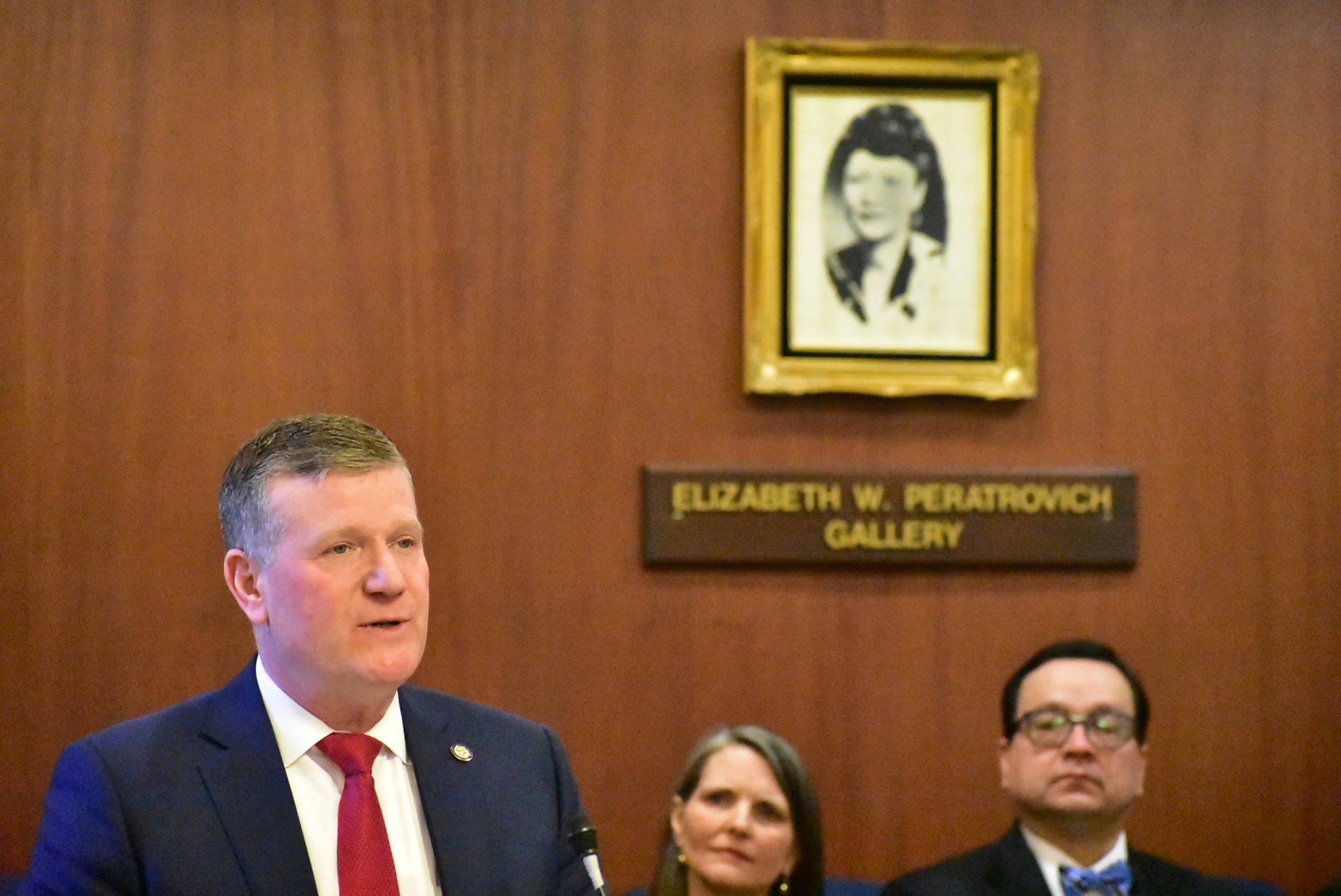Summary: Correction: This article incorrectly stated the House had passed HB 221. The House did not vote on that bill and instead voted to adjourn. The three members who listed below voted against adjourning, not against HB 221. The Empire regrets this error.
After a long at ease, the House votes to adjourn so members can attend a meeting of the recently formed COVID-19 working Group. The adjournment vote passes with 29 yeas and 3 nays from Eastman, Rep. Ben Carpenter, R-Nikiski, and Sharon Jackson, R-Eagle River.
11:40 A.M.
Kopp says his bill would only bring the state in line with what is already well established federal policy with U.S. Supreme Court precedent.
“This bill would officially end an era of colonial thinking,” Kopp says, and would help repair a broken relationship with people who have lived in Alaska for millennia and long self-governed themselves.
11:26 a.m.
The House passed a motion which would give the Legislative Council, a bipartisan joint committee, the authority to close the Alaska State Capitol until further notice.
Rep. Ivy Spohnholz, D-Anchorage, said this would not end public access to live-streams or other electronic coverage that allow the public to view and participate in the public process.
But another Anchorage Democrat, Chris Tuck, said this wasn’t the right time for such a move. People are already beginning to panic, he said, and the Capitol closing its doors would send the wrong message.
Rep. David Eastman, R-Wasilla, attempted to add an amendment which would set an end date to the motion. Currently the motion has no end date. But as House Speaker Bryce Edgmon, I-Dillingham, noted, the motion was simply to give Legislative Council decision making power over the matter. Eastman’s amendment failed however.
11:23 a.m.
Today the House will debate a bill which would have the state government officially recognize Alaska’s 229 already federally recognized tribes.
House Bill 221, sponsored by Anchorage Republican Chuck Kopp, already have 19 Democratic and Independent co-sponsors already giving it 20 votes. It needs 21 to pass.
The bill would be largely symbolic, Richard Chalyee Éesh Peterson, president of the Central Council of Tlingit and Haida Indian Tribes of Alaska previously told the Empire. But that symbolism would go a long way to heal the often fraught relationship between tribal and American government entities.
“Just a simple act of recognition can heal decades of hurt,” Peterson told the Empire in February. “One of the things that will happen for the larger community of Alaska, this will normalize the thought of tribes as sovereigns.”

